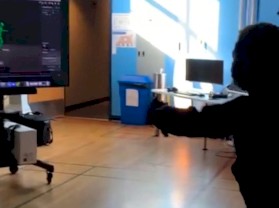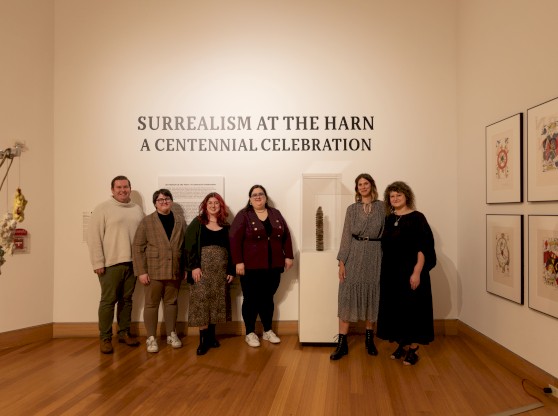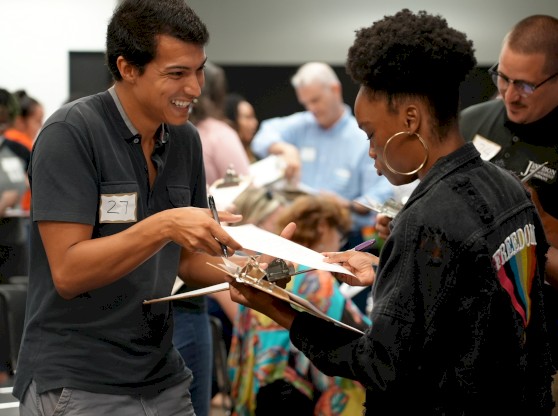This September was first-year museum studies student Katie Loughery’s first time both attending and presenting at a museum conference. The Florida Association of Museums Conference is an excellent opportunity to network and ruminate with other museum professionals in the state, many of whom share the same challenges.
Loughery’s presentation focused on how facilitating tactile experiences can help convey art appreciation and understanding of museum “rules” for visitors at the museum. This can be a tense subject since museums are charged with protecting the objects in their care, and preventing visitors from interacting personally with them has been one of the long-standing “rules” of museums. However, there is much to gain by handling an object and looking closely with multiple senses simultaneously. An education collection, which consists of objects that might be of lesser quality or damaged, can be used to enlighten visitors of the types of objects in the museum’s permanent collection. This allows visitors to put on gloves and touch or hold items within this collection.
People, especially children, who visit museums for the first time sometimes do not understand the standard museum rules of not running or touching and so on, what professionals in the field refer to as “museum literacy.” These visitors may inadvertently put art at risk, resulting in an uncomfortable situation involving museum guards. Using staff-facilitated touching experiences before families enter the galleries, visitors are invited to behave in ways contrary to the typical "rules."
“The staff member describes the reasons behind basic rules of not touching art in ways that all age groups can understand,” explains Loughery. “For example, they share that your hands have natural oils that can damage the art. This meaningful experience then translates into the galleries when families remember the recent conversation and have an increased respect for the safety of the art.”
Loughery is continuously studying how touching objects creates a sense of belonging in young museum visitors and nurtures a tight museum community, and expects this work will lend itself to her thesis. She also understands the importance of presenting for young professionals in her field.
“It's extremely important for students to present at conferences because it opens up the field as a participant and peer, not simply as an observer,” she says. “Sharing the generation of new ideas demonstrates that students are engaged, able and effective professionals in the museum community.”
“By presenting original work, students are making themselves marketable, and marketability helps students to find jobs.”




